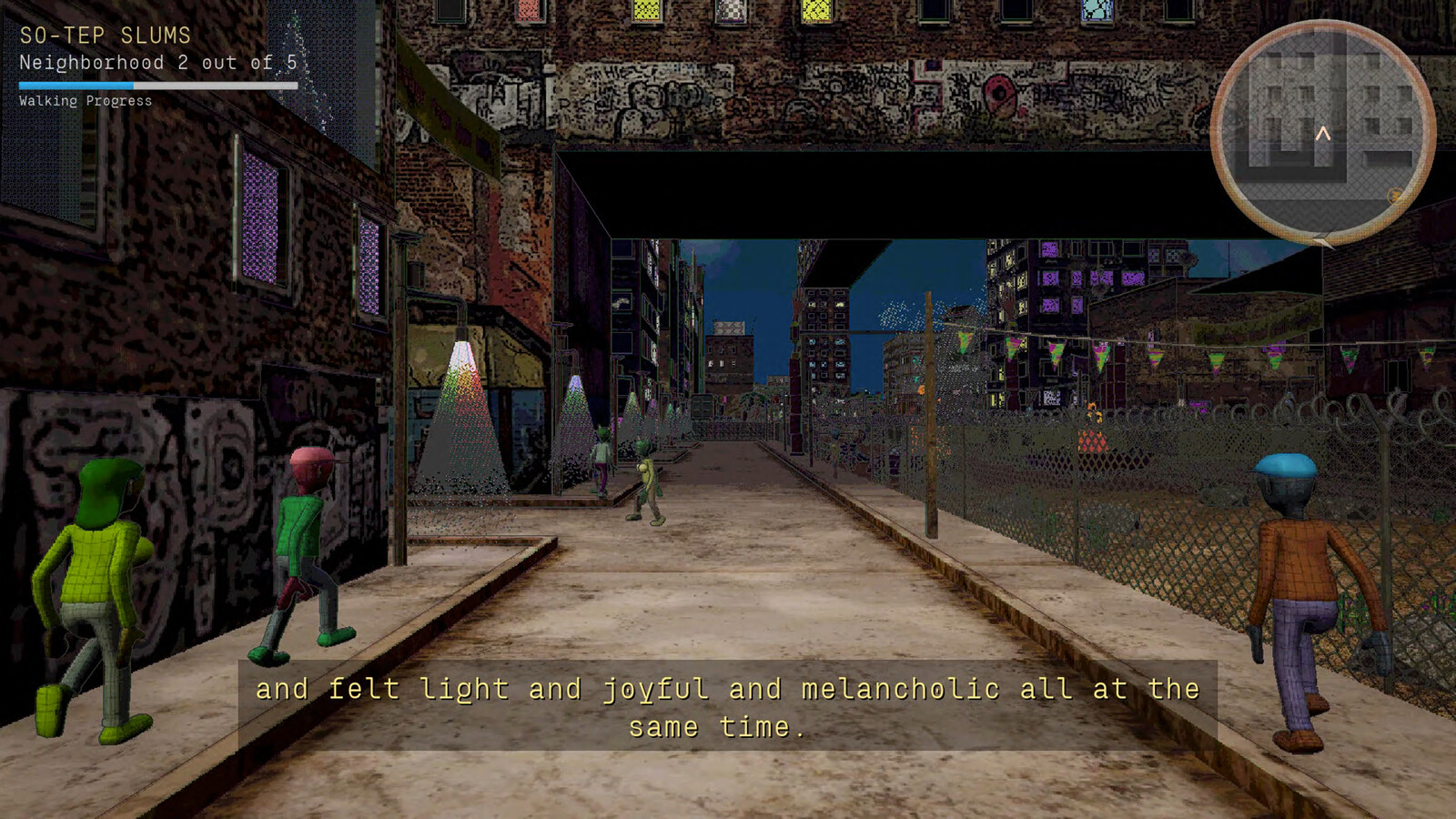Jeremy Couillard
July 18–October 6, 2024
Bartos Theatre
This summer, the MIT List Visual Arts Center will present Jeremy Couillard’s first solo museum exhibition.
Trained as a painter, Couillard is self-taught as a coder and digital artist. His projects exist as playable games, web projects, and video installations—often spanning multiple forms simultaneously. His games are defined by inventive character design and absurd premises: in one, alien terrorists steal the machine that powers reincarnation, trapping the player in the bardo (Alien Afterlife [2017]); in another, the rat-dog-witch player escapes their job through a hidden vault, only to find that the way back has been absorbed inside a Sasquatch sex amulet (Fuzz Dungeon [2021]). What unites his projects as they circulate between art and game contexts is a sensibility of disarming surprise and irreverent critique.
Couillard’s List Center presentation is centered around an installation version of his newest game, Escape from Lavender Island (2023). The game begins with players dreaming about a dystopian city before waking up and finding themselves there. Divided into neighborhoods like the “Corporate University Prison Town” and the “Clown Crypt Renovation Zone,” the city is controlled by the nefarious Lavender Corporation. Its landscape is dense with hidden quests, enigmatic public sculptures, fragments of language, and dirty jokes. The player’s progression through the city is enabled by a succession of masks, each associated with a power, like shooting pharmaceuticals at passersby, viewing alien billboards, and walking through walls. Lavender Island is an experiment in impossibility, but Couillard—drawing on the ideas of the anthropologist David Graeber—suggests that its imaginative world can help us see the contingency and hallucinatory quality of our own social arrangements.
This summer, Couillard’s absurd virtual city will assume physical form in the List Center’s Bakalar Gallery. Visitors to the exhibition will be able to play the full game and view a related continually generated video simulation, titled Zede’s Dream. The simulation travels through the streets and neighborhoods of Lavender Island, accompanied by music from the game’s soundtrack (by collaborator Chris Parrello) and narrative vignettes read by four actors. These stories offer brief glimpses into the lives of the city’s residents: otherworldly yet familiar stories of labor, exhaustion, and escape. These central pieces are accompanied by other artworks and design elements that materialize the contents of the game, such as wooden sculptures of digitally rendered flowers and a giant neon sweater reading “Depression.”
The exhibition also debuts a new series of Couillard’s textured acrylic paintings, made through an elaborate process of masking and layering. They are based on digital “tiles” that compose the modular building facades of Lavender Island; their titles are taken from the names of the corresponding digital assets. Their lush yet plasticky surfaces underscore the psychedelic artificiality that permeates the artist’s world.
List Projects 30: Jeremy Couillard is organized by Natalie Bell, Curator, with Zach Ngin, Curatorial Assistant.
Jeremy Couillard (b. 1980, Livonia, Michigan) lives and works in New York. Previous exhibitions include solo presentations at Denny Gallery and yours mine & ours Gallery in New York, among others. His work has been screened at venues in New York like Times Square Midnight Moment, Brooklyn Academy of Music, Flux Factory, and the New Museum, as well as Rotterdam Film Festival. He received an MFA in Painting from Columbia University in 2012, and he teaches New Media at LaGuardia Community College in Queens. Within the world of games, his achievements include two recent nominations for the Independent Games Festival Awards in San Francisco as well as a nomination for the Most Amazing award at A.MAZE fest in Berlin.
General operating support is provided by the Massachusetts Institute of Technology; the Council for the Arts at MIT; Philip S. Khoury, Vice Provost at MIT; the MIT School of Architecture + Planning; the Mass Cultural Council; and many generous individual donors. This exhibition is also supported by generous donors to the 2023 McDermott Award Gala, hosted by the Council for the Arts at MIT. The Advisory Board Members of the List Visual Arts Center are gratefully acknowledged.
For a full list of events and programs, please visit: here.





